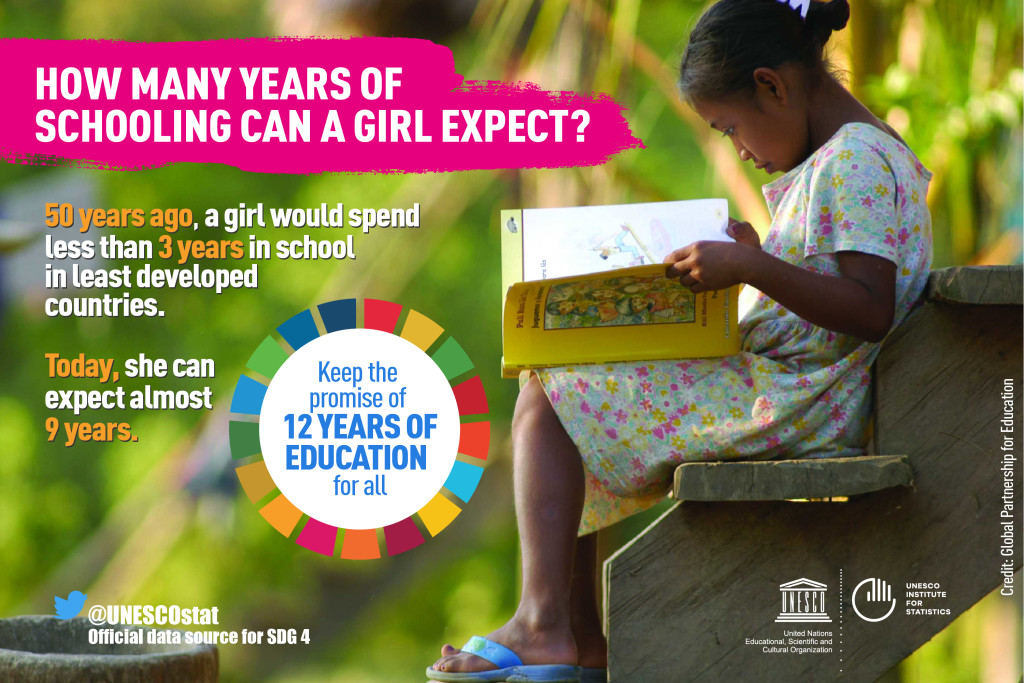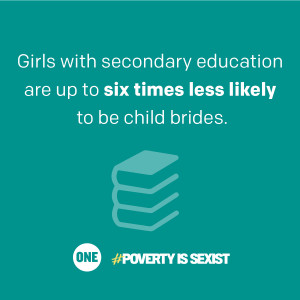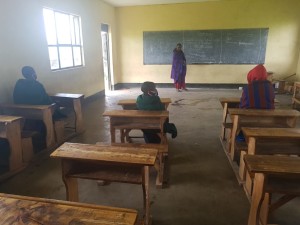The Other Crisis: Making Sure Girls Return to School
May 20th, 2020 | By admin | Category: Youth RightsBy Suzanne York.
It’s obvious that people all over the world have not just been inconvenienced by COVID-19, but many lives have been turned upside down and put at great risk due to a number of factors.
Education is one such important sector where students are struggling to adjust. It’s hard enough in the developed countries when schools shut down, but what about youth in developing nations? And what does in mean in particular for young girls, who at greater risk of gender-based violence, early marriage, unplanned pregnancies and lost opportunities, to name a handful of threats?
Reversing Years of Progress
At the start of the coronavirus crisis, the United Nations reported that 166 countries had implemented country-wide school and university closures. More than 1.52 billion children and youth are currently out of school or university, representing 87 per cent of the world enrolled school and university student population. The longer this crisis goes on, the harder it will be for girls to return to school; UNESCO warned that there is a grave danger of reversing 20 years of gains made for girls’ education.
The Malala Fund estimates that 10 million more secondary school-age girls could be out of school after the initial COVID-10 threats have decreased.
UNESCO’s International Institute for Educational Planning urges communities to implement the following actions to help girls return to school:
- ensuring equitable representation of women and men in crisis-related decision-making and tapping into women’s’ expertise;
- producing gender-sensitive data relating to the crisis;
- using women’s networks at the community level to organize responses to the crisis;
- encouraging girls to continue learning during and after the crisis and to support their peers;
- encouraging men and women to share childcare and domestic work in the household and community;
- denouncing domestic violence as well as putting in place safe environments for female victims of abuse.
Tanzania – Students Teaching Students
Tanzania is one country to keep a close eye on, as the government may not be taking this coronavirus as seriously as it should, and this impacts education. The World Bank reported that there were 2.2 million secondary students in Tanzania in 2018. Amongst its many ongoing challenges is keeping girls in secondary school, as parents find it difficult or are unwilling to pay school fees; COVID-19 is exacerbating this problem. Demographic and health surveys show 30% of girls in Tanzania are married before their 18th birthday and 5% are married before the age of 15.
Maasai Harmonial Development and Sustainability (MHDS), a community-based organization in the Maasai village of Emburbul in northern Tanzania, is working to meet the need of young girls impacted by COVID-19. Like the rest of the world, schools were closed in March and their students returned home. Some young women are now at risk of early marriage, as it is a customary practice to marry girls when they reach adolescence.
With girls home from school, there is a greater chance their impoverished parents will want to just marry them off for a bride price rather than deal with sending them back to school once it resumes.
Karen Pitts, a U.S.-based supporter and volunteer with MHDS in the U.S., says that in her experience, when Maasai communities see the benefits of education and what Maasai women can do when educated, they slowly change their social norms.
With that in mind, MHDS has been implementing classes taught by girl students.
According to Pitts, to prevent MHDS’ recent progress in educating girls from sliding backward, they are paying the secondary school girls wages to teach other students and even non-students about COVID-19 precautions. She says they “hope that the girls taking home money will raise their esteem in their parents eyes, and prevent early marriage and early pregnancy.”
Furthermore, Pitts believes that “If time allows, these girls will teach other students on regular school subjects so they won’t fall so far behind.”
Ten secondary school girls are now back home, as are 76 primary girl students.
Three of those secondary-aged girls, with assistance from a local male university student, have organized the classes. They teach a variety of topics, from English to math to dealing with COVID-19.
They are teaching other secondary students and also primary students, trying to help them learn English so they can actually get into secondary school. This is greatly needed, as English is their third language and there is a lack of schoolbooks to help learn English.
They are even teaching non-students about COVID-19. These young people will remain in the village after the students return to school. And they will be better prepared for the next wave of coronavirus.
The classes have to be kept very small due to social distancing rules. This project has only recently gotten up and running, and now the government is talking about opening schools up in a couple of weeks. Given the need for greater understanding of COVID-19, most of the educational outreach will now focus on that. If possible, MHDS is encouraging the youth to make skits or songs patterned after PSA videos that have emerged to educate people about COVID-19. These skits can be performed at local markets.
Improving on the Return to ‘Normal’
Even without COVID-19, MHDS is working under difficult conditions to help out the Maasai community in Emburbul. The lockdown has eliminated jobs and consequently increased poverty, cell reception is often poor, hindering connection with the outside world, and food insecurity is rising, due to increasingly severe climate impacts.
This is why it is so important to focus on empowering girls via access to education. Education experts emphasizethat governments across the world prioritize initiatives to protect girls from gender-based violence, early marriage and pregnancy to enable their return to school. The need in Tanzania and Emburbul is great, and COVID is exacerbating existing problems.
Suzanne York is Director of Transition Earth. MHDS-US is a project of Transition Earth.



